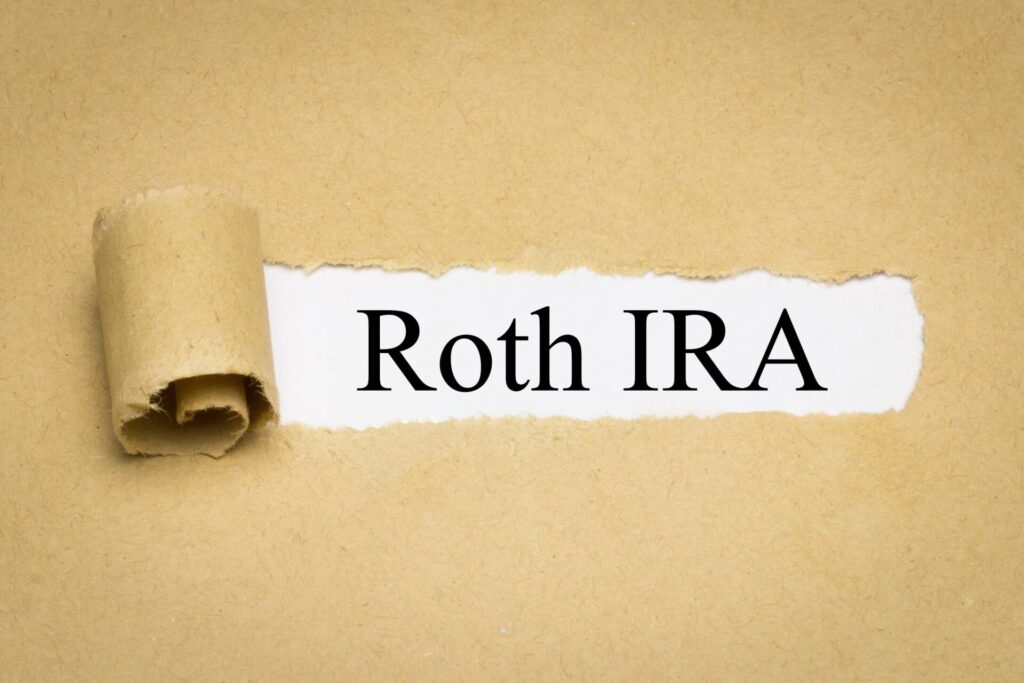
Explanation of 401k and Roth IRA
Hey there! Are you tired of feeling like you’re drowning in financial jargon and terms you don’t understand? Let’s break down the basics of two important retirement savings accounts: the 401k and the Roth IRA.
A 401k is a retirement savings plan offered by your employer. It allows you to save money on a pre-tax basis, meaning you won’t pay taxes on the money you contribute until you withdraw it in retirement. On the other hand, a Roth IRA is an individual retirement account that you set up and fund on your own. With a Roth, you contribute money that you have already paid taxes on, and your cash grows free of tax.
Benefits of rolling over 401k to Roth IRA
Now, if you have a 401(k) and are thinking about switching, you’re in the right place! Rolling over your 401k to a Roth IRA can be a smart financial decision for several reasons.
First, with a Roth IRA, you have the ability to withdraw your money tax-free in retirement, while with a traditional 401(k), you’ll pay taxes on your withdrawals. Additionally, a Roth IRA has no age restrictions for withdrawals, whereas a traditional 401k may have penalties for early withdrawals.
Finally, a Roth IRA also gives you greater flexibility in terms of investment options, so you can tailor your portfolio to your specific financial goals.
Purpose of the article
In this article, we’ll dive into the details of rolling over your 401k to a Roth IRA, including the eligibility requirements, step-by-step guide, tax implications, and considerations you should keep in mind. Whether you’re a seasoned investor or just starting to think about retirement planning, this article is for you! So buckle up, grab a pen and paper, and let’s get started!
What is a 401k Rollover to a Roth IRA

Definition: So, what exactly is a 401k rollover to a Roth IRA? In simple terms, it’s the process of transferring funds from your traditional 401k account to a Roth IRA account. It’s a way to switch from a pre-tax savings plan to a tax-free savings plan.
Eligibility requirements: Before we dive into the pros and cons, let’s talk about who can do a 401k rollover to a Roth IRA. The good news is that anyone with a traditional 401k can roll it over to a Roth IRA, as long as the funds are eligible for rollover.
However, there are some restrictions based on income and tax-filing status. If your modified adjusted gross income (MAGI) is above a certain limit, you may not be able to do a direct rollover and may have to pay taxes on the funds as they are distributed from your 401k.
Pros and Cons: Now, let’s talk about the pros and cons of rolling over your 401k to a Roth IRA. On the one hand, a Roth IRA offers tax-free withdrawals and greater flexibility in terms of investment options. On the other hand, converting your 401k to a Roth IRA will trigger a tax bill for the year in which you make the conversion. This means you’ll need to pay taxes on the amount you roll over to the Roth IRA.
It’s important to weigh the benefits and drawbacks of a 401k rollover to a Roth IRA carefully and consult with a financial advisor to determine if it’s the right move for you. The bottom line is, a Roth IRA can be a great choice for some, but it’s not for everyone.
Step-by-Step Guide to Rollover 401k to Roth IRA

Choose a Roth IRA provider
Alright, let’s get into the nitty-gritty of how to roll over your 401k to a Roth IRA. First, you’ll need to choose a Roth IRA provider. This can be a bank, investment company, or other financial institution that offers Roth IRA accounts.
Do your research and compare different providers to find the one that best fits your needs. Look for features like low fees, a wide range of investment options, and a user-friendly platform. And don’t be afraid to ask for help from friends or family members who have experience with Roth IRAs!
Notify your current 401k plan administrator
Once you’ve selected a Roth IRA provider, it’s time to notify your current 401k plan administrator. You’ll need to fill out a request form to initiate the rollover process. Make sure to provide all the necessary information, including your name, account number, and contact information.
Transfer funds directly from your 401k to Roth IRA
Next, you’ll need to arrange for the transfer of funds from your 401k to your Roth IRA. This is typically done by directing your current 401k administrator to send the funds directly to your new Roth IRA account.
It’s important to choose a direct transfer, also known as a “trustee-to-trustee transfer”, because this type of transfer is free of tax and eliminates the risk of you taking possession of the funds and incurring a tax liability.
Complete required tax paperwork
Finally, you’ll need to complete any required tax paperwork related to the rollover. This may include filing a Form 1099-R to report the distribution from your 401k, and a Form 8606 to report the conversion of your 401k to a Roth IRA.
Don’t worry, your Roth IRA provider should be able to help you with this part of the process, but it’s always a good idea to consult with a tax professional to ensure you’re completing everything correctly.
And that’s it! With these four simple steps, you can successfully roll over your 401k to a Roth IRA. Just remember, the whole process may take several weeks, so be patient and stay on top of things to ensure a smooth and successful transition.
Tax Implications of Rollover
Explanation of taxes on contributions
Now, let’s talk about the tax implications of rolling over your 401k to a Roth IRA. First, let’s talk about taxes on contributions. When you make contributions to your Roth IRA, they’re made with after-tax dollars, meaning you’ve already paid taxes on the money you’re putting into the account.
This is different from a traditional 401k, where contributions are made with pre-tax dollars and taxed when you withdraw the funds in retirement. By making after-tax contributions to a Roth IRA, you’re essentially making a trade-off: you pay taxes now in exchange for tax-free withdrawals in the future.
Explanation of taxes on earnings
Just like with Roth contributions, earnings on your Roth IRA are also tax-free. This means that any investment gains, dividends, or interest earned in the account are yours to keep without having to pay taxes on them.
This is a huge benefit of a Roth IRA, especially when you consider that investment gains can be substantial over time. With a Roth IRA, you won’t have to worry about paying taxes on your investment earnings, even when you withdraw the funds in retirement.
Discussion of tax-free withdrawals
Finally, let’s talk about the best part of a Roth IRA: tax-free withdrawals. As long as you’ve held the account for at least five years and you’re over 59 1/2 years old, you can withdraw your contributions and earnings tax-free.
This is a huge benefit of a Roth IRA, especially when you consider that taxes can eat up a significant portion of your retirement savings. With a Roth IRA, you won’t have to worry about paying taxes on your withdrawals, giving you more money to enjoy in retirement.
So, there you have it: the tax implications of rolling over your 401k to a Roth IRA. By making the switch, you can enjoy tax-free contributions, earnings, and withdrawals, helping you build a more secure and prosperous retirement.
Considerations before Rolling Over 401k to Roth IRA

Age and income limits
Before you make the switch from a 401k to a Roth IRA, there are a few things to consider. First, it’s important to know that there are age and income limits that determine whether you’re eligible to contribute to a Roth IRA.
If you’re under the age of 50, you’re only able to contribute up to $6,000 per year to a Roth IRA. If you’re over 50, you’re able to make catch-up contributions, bringing your total contribution limit up to $7,000 per year.
In addition to age limits, there are also income limits that determine whether you’re eligible to contribute to a Roth IRA. If your income exceeds a certain amount, you may not be able to make contributions, or you may only be able to make partial contributions.
Future financial goals
Another consideration before rolling over your 401k to a Roth IRA is your future financial goals. While a Roth IRA has many benefits, it may not be the right choice for everyone.
For example, if you’re nearing retirement and you’re counting on the tax-deferred growth of your 401k to help support you in retirement, rolling over to a Roth IRA may not be the best choice. On the other hand, if you’re just starting out in your career and you have a long time horizon before retirement, a Roth IRA may be a great choice.
It’s important to consider your future financial goals and how a Roth IRA fits into your overall financial plan before making the switch.
Investment options in Roth IRA
Finally, it’s important to consider the investment options available in a Roth IRA. While most 401k plans offer a limited selection of investment options, Roth IRAs typically offer a much wider range of investment options, including stocks, bonds, mutual funds, and exchange-traded funds (ETFs).
This is great news for investors who want more control over their investments and the ability to build a customized investment portfolio. However, it’s important to remember that with more investment options comes more responsibility. You’ll need to do your research and make informed investment decisions to ensure your Roth IRA is working hard for you.
So, there you have it: some things to consider before rolling over your 401k to a Roth IRA.
Read More: The Pros and Cons of Different Investment Vehicles: Stocks, Bonds, and Real Estate
Advantages of a Roth IRA over a 401k

The Tax Advantages of Rolling Over Your 401k to a Roth IRA
One of the most significant benefits of converting your 401k to a Roth IRA is the ability to take tax-free withdrawals in retirement. Instead of paying income taxes on the money you withdraw, you’ve already paid taxes on your contributions using after-tax money, which means you won’t owe any additional taxes when you take money out in retirement.
This tax advantage is especially beneficial if you anticipate being in a higher tax bracket in retirement. By paying taxes on your contributions now, you’re locking in today’s lower tax rate and ensuring that your retirement income will be tax-free.
No Age Restrictions for Withdrawals
Another advantage of a Roth IRA is the lack of age restrictions for withdrawals. With a 401k, you’re required to start taking required minimum distributions (RMDs) at age 72. But with a Roth IRA, there are no RMDs, so you can leave your money in the account for as long as you’d like.
This increased flexibility gives you greater control over your retirement income. You can choose when and how much you want to withdraw, without having to worry about RMDs or penalties.
Expanded Investment Possibilities with a Roth IRA
Finally, a Roth IRA offers more investment possibilities compared to a 401k, which typically has a limited selection of investments such as pre-tax funds. Roth IRAs offer a wider range of investment diversification options, including stocks, bonds, mutual funds, and ETFs.
This increased flexibility in investment diversification can be a huge advantage, especially if you’re seeking to create a customized investment portfolio that aligns with your financial goals. Whether you’re a conservative investor or looking to take on more risk, a Roth IRA gives you the freedom to choose the investments that best suit your needs.
Risks associated with rolling over 401k to Roth IRA

Market fluctuations:
One of the biggest risks associated with rolling over your 401k is the risk of market fluctuations. Just like with any investment, the value of your Roth can go up and down based on market conditions.
While you can diversify your investments to minimize this risk, it’s important to keep in mind that there’s always a chance that your investments could lose value. It’s important to have a well-diversified investment portfolio and to consider your risk tolerance before making any investment decisions.
Inflation:
Another risk to consider is inflation. Inflation is the rate at which the cost of goods and services increases over time, and it can eat away at the value of your retirement funds.
While a well-diversified investment portfolio can help to mitigate the impact of inflation, it’s important to keep in mind that inflation is a natural part of the economy and that it can impact your retirement savings over time.
Early withdrawal penalties:
Finally, it’s important to consider the risk of early withdrawal penalties. With a Roth IRA, you’re allowed to take out your contributions at any time without paying taxes and penalty free. However, if you take out your earnings before you’re 59.5 years old, you’ll owe taxes and a 10% early withdrawal penalty.
So, it’s important to plan carefully and to consider your financial goals before making any withdrawals from your Roth Individual retirement account. By doing so, you can minimize the impact of early withdrawal penalties and ensure that it is working hard for you and helping you reach your financial goals.
While a Roth rollover can be a great way to grow your retirement account and enjoy penalty free withdrawals in retirement, it’s important to consider the risks involved and to make an informed decision that aligns with your financial goals.
How to minimize taxes during a 401k rollover
Timing of rollover to maximize retirement savings
One of the key factors to consider when rolling over your 401k is timing. By carefully timing your rollover, you can help to minimize your tax liability and ensure that you’re maximizing your retirement funds.
For example, if you rollover your 401k during a year when you’re in a lower tax bracket, you’ll pay less in taxes on your conversion. On the other hand, if you wait until you’re in a higher tax bracket, you may end up paying more in taxes.
Conversion strategies
Another way to reduce taxes during a 401k rollover is to use smart conversion strategies. For example, you may consider converting only a portion of your 401k to your existing Roth account each year, or you may choose to convert your 401k gradually over time.
By using smart conversion strategies, you can help to minimize your tax liability and ensure that you’re maximizing the value of your retirement fund.
Consultation with financial advisor or tax professional.
Finally, it’s always a good idea to consult with a financial advisor or tax advisor before making any major financial decisions, including a 401k rollover. They can help you understand your options, provide guidance on the best strategies for minimizing taxes, and help you make an informed decision that aligns with your financial goals.
By taking the time to work with a financial professional, you can ensure that you’re making the most of your 401k rollover and that you’re on track to reach your financial goals.
By carefully timing your rollover, using smart conversion strategies, and consulting with a financial advisor or tax advisor, you can help to minimize taxes during your 401k rollover and ensure that you’re maximizing the value of your retirement account.
Setting Yourself Up for a Secure Retirement: Final Thoughts on 401k to Roth IRA Rollovers

Recap of benefits of rolling over your 401k
In this article, we’ve explored the many benefits of rolling over your 401k to a Roth IRA. From avoiding tax penalties from withdrawals to increased flexibility in investment opportunities, there are many reasons why this may be a smart choice for your retirement savings.
Final thoughts
As you consider whether a 401k rollover to a Roth is right for you, it’s important to think about your financial goals and what you want to achieve in retirement. While a Roth can offer many advantages, it’s not the right choice for everyone.
Ultimately, the decision to rollover your 401k to a Roth should be based on your unique financial situation, your goals, and your risk tolerance. By doing your research, considering your options, and working with a financial professional, you can make an informed decision that will help you reach your financial goals and enjoy a comfortable and secure retirement.
Seek professional advice on your existing Roth IRA or Rolling Over your 401k
If you’re considering a 401k rollover, it’s important to seek professional advice if needed. An advisor or tax expert can help you understand your options, provide guidance on the best strategies for minimizing taxes, and help you make an informed decision that aligns with your financial goals.
By taking the time to work with a financial professional, you can ensure that you’re making the most of your 401k rollover and that you’re on track to reach your financial goals.
By carefully considering your options and seeking professional advice if needed, you can make a smart decision about your 401k rollover and be well on your way to a comfortable and secure retirement. So why wait? Start planning for your financial future today!
Frequently Asked Questions
A 401k rollover to a Roth IRA is the process of transferring funds from a traditional 401k plan into a Roth IRA. The Roth Individual retirement account allows for tax-free withdrawals in retirement and more flexible investment options.
Generally, anyone with a traditional 401k plan is eligible for a 401k rollover to a Roth IRA. However, there may be income limits for Roth IRA contributions, so it is important to check your eligibility with a certified financial planner or tax advisor.
The benefits of rolling over a 401k to a Roth IRA include tax-free withdrawals in retirement, no age restrictions for withdrawals, and increased flexibility in investment options.
The steps to rollover a 401k to a Roth IRA include choosing a Roth IRA provider, notifying your current 401k plan administrator, transferring funds directly from your 401k to Roth IRA, and completing required tax paperwork.
When rolling over a 401k to a Roth IRA, contributions are taxed as income in the year they are converted. However, earnings and withdrawals from a Roth IRA are tax-free in retirement.
Before rolling over your 401k to a Roth IRA, you should consider your age, income limits, future financial goals, and investment options available in a Roth IRA. It is also important to understand the risks associated with market fluctuations, inflation, and early withdrawal penalties.
To minimize taxes during a 401k rollover to a Roth IRA, it is important to consider the timing of the rollover, conversion strategies, and to consult with a financial advisor or tax advisor.
Rolling over a 401k to a Roth IRA is not always the best decision for everyone. It is important to consider your individual financial situation and goals before making a decision. It is recommended to seek professional advice to determine if a 401k rollover to a Roth IRA is the right choice for you.




